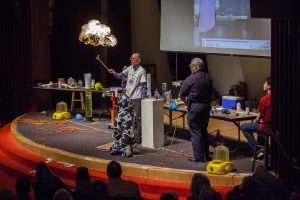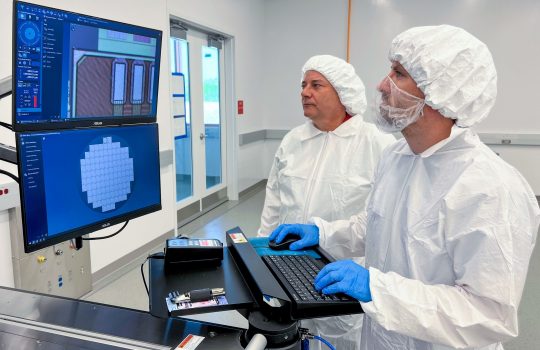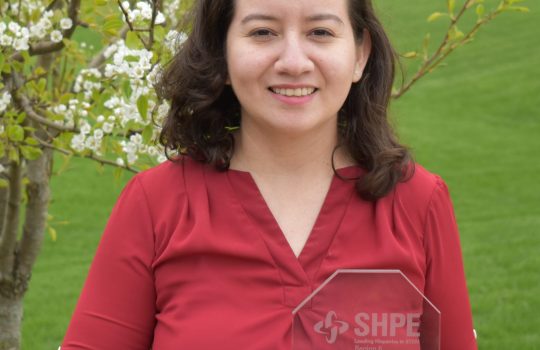
Fermilab’s annual Wonders of Science show will feature eye-popping chemistry and physics demonstrations for the whole family to enjoy. Photo: Reidar Hahn
That’s the thinking behind the U.S. Department of Energy’s Fermi National Accelerator Laboratory’s annual Wonders of Science show, which will take place on Sunday, March 10, at 1 p.m.. The show, organized and performed by award-winning high school teachers, is celebrating its 32nd year at Fermilab. Tickets are $5.00 per person.
This year’s theme is detectors, and the show will feature Weird Science, a group of current and retired high school teachers who have been recognized locally and nationally for their ability to engage young minds.
“There is nothing like seeing kids get excited about science,” said Amanda Early, an education program leader at Fermilab. “The look on the kids faces as they see science come to life in front of them is incredibly rewarding, and it is one of the many reasons this event is so popular.”
Weird Science includes Lee Marek of the University of Illinois at Chicago (formerly of Naperville North High School), Karl Craddock of Fremd High School in Palatine and Bill Grosser of Oak Park-River Forest High School. Together, they will demonstrate eye-popping chemical and physical science experiments designed to be both fun and educational.
The Wonders of Science show is intended for ages 7-12, and scout troops are welcome. Each family will receive a science kit, which they can use to conduct their own experiments at home. Children must be accompanied by an adult. Tickets may be ordered online at http://ed.fnal.gov/events/wos. For additional information, call 630-840-5588 or email edreg@fnal.gov.
Fermilab is America’s premier national laboratory for particle physics and accelerator research. A U.S. Department of Energy Office of Science laboratory, Fermilab is located near Chicago, Illinois, and operated under contract by the Fermi Research Alliance LLC, a joint partnership between the University of Chicago and the Universities Research Association Inc. Visit Fermilab’s website at www.fnal.gov and follow us on Twitter at @Fermilab.
The DOE Office of Science is the single largest supporter of basic research in the physical sciences in the United States, and is working to address some of the most pressing challenges of our time. For more information, please visit http://science.energy.gov.



